The greatest warrior king is credited with founding the Maratha empire, which lasted nearly two centuries. At its height, the empire stretched from Attock in Pakistan to Thanjavur in Tamil Nadu.
Shivaji Bhonsle, widely recognized as Chhatrapati Shivaji Maharaj, was a member of the Bhonsle Maratha clan and an Indian warrior king. Shivaji created the Maratha Empire by carving out a stronghold from the declining Adilshahi kingdom of Bijapur.
He was formally crowned Chhatrapati (Monarch) of his domain at Raigad in 1674. With both the help of a disciplined military and well-structured administrative agencies, Shivaji established a competent and progressive civil rule.
He pioneered unconventional military tactics, leveraging strategic factors such as geography, speed, surprise, and pinpoint attacks to defeat his larger and more powerful adversaries.
Shivaji’s passion and vision, as well as his greatness as a warrior, army commander, and diplomat capable of forging critical alliances, deserve much of the credit.
Shivaji commanded a force of 10,000 cavalries as well as 50,000 infantry by the 1660s, which he used against Mughal targets. Shivaji was a maestro of guerrilla tactics and raids, far more adept than the bulky Mughal army at nimble operations.
Numerous questions arise in regard to the Maratha-Muslim military and government relations that shaped Deccan history in the eighteenth century.
Muslims fought in large numbers in the Maratha armies during the seventeenth and 18th centuries but were eventually banished from Maratha history due to the laborious efforts of Maharashtra’s modern historians during the colonial period.
Today, Shivaji is remembered as the legendary leader who defeated the Mughals and founded the Hindu regime in the Deccan. Many have praised him as having an integral role in the Hindu nationalist agenda, but his connection with Islam and Muslims is not so simple as the right wing propagandists say.
Shivaji’s ancestors admired Muslim saints. Shivaji himself has always admired Muslim saints. Yakut Baba, a Sufi Muslim saint, was one of the king’s spiritual guides, and his grandfather visited Saint Shah Shareef in Ahmednagar on a regular basis.
Shivaji’s father, for example, was named to honor a Muslim saint called Shah Sharif – while Shahji bore the first part of the Pir’s name, his brother took the second and also was called Sharifji from Khilji to Shivaji.
Maloji, his grandfather, was not only a devoted officer of the Nizam Shahs of Ahmadnagar, but his samadhi is clearly a completely Islamicate structure that still stands in Ellora. His mother’s family was staunchly anti-Mughal.
To top it all off, Shivaji himself had Muslim Pathans in his military forces, as well as qazis, to oversee Islamic justice within his domains.
On the other hand, a number of the measures taken by the warrior emperor during his reign give the impression that his reign must have been filled with hatred for Muslims.
Some of these steps include reworking court culture derived from classical Hindu texts substituting Persian with Sanskrit as the dialect of diplomacy, and enticing Maratha families for allegiance in order to fulfill the desire of establishing a Hindavi kingdom.
However, it contends that all of this was undoubtedly a refusal of an existing system of power based on Islamic ideals, but it does appear to be a sign of hatred for that religion itself.
Shivaji’s enormous desire to establish a great presence in Deccan politics drove him to take such measures.
It is also believed that the ruler’s empathy for the poor, who had been suffering for years in endless wars owing to the Mughal encroachment, significantly lowering the region to unparalleled desperation, contributed to this drive.
The Gardis the European skilled Afghan Guard Battalion — guarded the Shaniwarwada, the intrigue-ridden palace of the Peshwas in Pune, and it was one of the most important places in Chhatrapati Maharaj’s dynasty.
The Marathas ended up fighting and bargained with the Nizam over the subedar of the Deccan without conversing about establishing a Hindu Pad-Padshahi in the region.
The Maratha-Muslim military collaboration continued into the nineteenth century, as evidenced by the struggling resistance offered to the British by Afghans serving the Rani of Jhansi within the besieged Jhansi fort in 1857.
Chhatrapati Shivaji had always strived to retain the dignity of the folks in his regions and was careful to keep the respect of women and children of Muslims when they fell into the hands of his army. His orders were very strict on this point.
Shivaji Maharaj was an intensely secular ruler who valued his subjects’ religious sentiments, including a huge number of Muslims.
He envisioned his Kingdom as a secular buffer state between both the Sunni Muslim Mughal Empire and the Shia Muslim Bijapur Sultanate.
He had nothing communally against the Muslims as individuals, but he abandoned older systems based on Islamic ideals in favor of another based on Indian high tradition.
While allied with Sultans such as the Qutb Shah of Golconda (whose ministers were Brahmins), confronted fellow Hindu Marathas (for whom the loyalties lay with Sultans), and even came perilously close to being absorbed into the Mughal court on one occasion.
Shivaji was creating a new self-image that the chronicle Sabhasad bakhar refers to as Navi paddhati or the new course. It was not, by any means, patriotism defined in communal terms; rather, it was a feudal order derived from Hindu roots.
According to Shivaji, Hinduism and Islam are manifestations of the same divine spirit, and his actions reflected those sentiments clearly.
Shivaji died on April 3, 1680, at the age of 52, at the Raigad Fort, after succumbing to dysentery.
Following his death, a succession dispute arose between his eldest child Sambhaji and his third wife, Soyrabai, at the behest of her 10-year-old son Rajaram.
On June 20, 1680, Sambhaji unseated the young Rajaram and ascended the throne to himself. After Shivaji’s death, the Mughal-Maratha conflicts continued, and Maratha’s glory declined dramatically.
It was reclaimed, however, by the young Madhavrao Peshwa, who restored Maratha glory and created his authority over North India, and brought glory to his ancestors.
Conclusion
Shivaji, known for his courage and war tactics, has always been the epitome of wisdom and intellectuality. Though he preferred to build a Hindu Rashtra, he never disregarded the existence of Islam. Simply put, his relationship with Islam was more complex than we can imagine. But it was certainly not a bitter one.




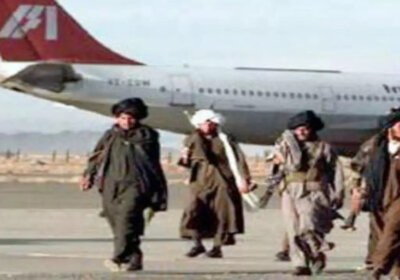
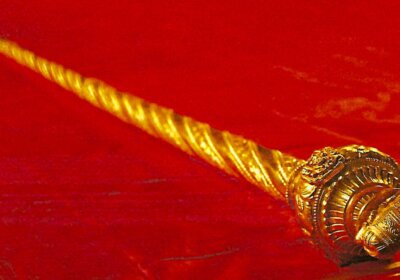
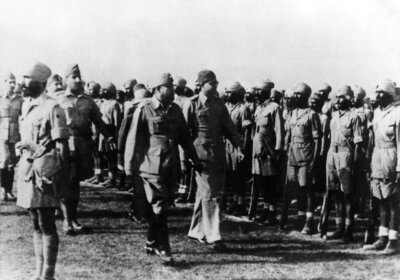
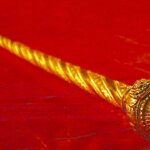
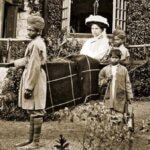
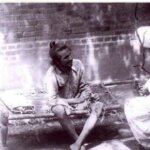


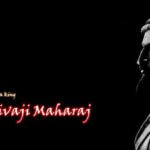
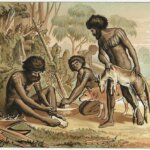

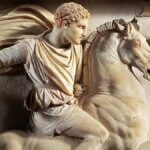
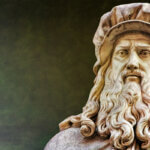
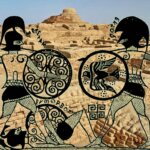





Leave a Reply